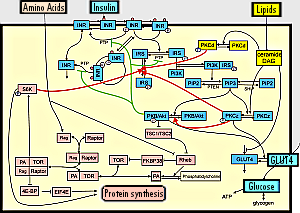The Mathematics Department has received a Research Training Grant from the National Science Foundation that supports undergraduate research in mathematical biology. Eight summer research stipends are available each year. The faculty and graduate students in mathematical biology, and biologists are the mentors for these summer undergraduate investigations.
Often these projects lead to senior theses and graduation with distinction. The Mathematics Department has additional stipends available through its PRUV program. Further support is available through the University program on "Modeling Biological Systems". Detailed instructions about how to apply for this research support will be posted here by November 1, 2010. For more information, contact Michael Reed ( ), the Director of the Research Training Grant program.
The Department of Mathematics regularly offers three undergraduate courses (below) devoted to the applications of mathematics to biology and medicine. Many other undergraduate courses include applications to biological systems.
|
Diagram showing Insulin Signaling. Click for the large, high-resolution image to see more information and detail. 
|